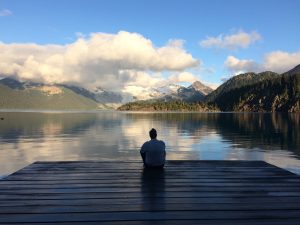
Essentials (and the not-quite-essentials) for overnight hiking
By Jacey Gibb, Distribution Manager
Great Inclinations is your go-to source for diving into the world of casual hiking in and around the Lower Mainland. Because hiking’s not just for assholes anymore.
How you pack for a day hike is wildly different from what to bring on an overnighter. There’s a lot to account for, even if you’ll only be in the wilderness for 12 hours. Here are a few things you need to consider, plus a few non-essentials that will just make your life easier.
First off, you’ll need a tent. Chances are if you already own a tent, it’s not one that’s suited for overnight hikes. Cheaper, more common tents tend to be bulkier and heavier—and when you’re carrying everything you need on your back, those few added pounds make a big difference! Unfortunately, the extremely lightweight tents—we’re talking one or two pounds—cost up to $500. However, you can still snag some of the lighter ones for $150 to $200. They’re also quite durable and will last for many seasons.
Next, your sleeping gear. Some campgrounds have tent pads constructed out of wooden planks; other campsites will just have a dirt or slightly rocky ground to sleep on. Regardless, it’s a good idea to have some kind of cushion or padding to make sleeping on the ground slightly more enjoyable. Sleeping pads are easy to inflate and provide a nice cushion of air between you and the ground, which also helps keep you warmer. They’re also light and compact, whereas traditional foam cushions are larger and harder to transport. Sleeping bags are an obvious necessity but you don’t need to bring a pillow. Just fill the case your sleeping bag came in with extra clothing to make an impromptu one.
Another item that I’ve never regretted bringing on an overnight hike: A few plastic bags. They’re light, squish down so they don’t take up precious real estate in your pack and can be used for almost anything. Use them to store food scraps or garbage, or to keep wet clothing from soaking your dry items. Most hiking campgrounds also have a “pack in what you pack out” policy, so keeping an ongoing garbage bag is super handy. Just chuck the whole bag as soon as you get home.
When you hike for several kilometres, you end up burning through drinking water quickly. Thankfully, there are a few options for how to stay hydrated on the go. Boiling water is always an option—a rolling boil for a minute or two, depending on your elevation—but it’s time-consuming and can waste a lot of fuel. There are also water purification tablets which purify water but also take anywhere between 30 minutes to four hours to completely take effect. For most overnight hikes, I prefer to use a LifeStraw, which comes in a tube about the size of an EpiPen and acts as a straw. Simply dip the LifeStraw into any sort of freshwater and suck on the non-submerged end. Water is filtered through the straw so that by the time it reaches your mouth it’s been purified. My advice: Pack a regular water bottle and once it’s empty, refill it from a nearby water source like a stream or lake. Then use the LifeStraw to drink from your bottle.
My last packing suggestion is a pair of water shoes. After hiking for hours, it feels downright luxurious to pull off your boots and slide into some water shoes. For starters, most are made out of a light fabric and are more compact than regular shoes. They’re also more comfortable than hiking boots, while still being durable enough for wandering around a campsite. You can also snag water shoes for really cheap—like, $10 cheap. Pack some water shoes on your next overnight hike and thank me later.
Like any new hobby, the cost of gear for overnight hiking can add up quickly. Try borrowing some of the aforementioned supplies from friends or family members to see if you even like overnight hikes before dropping a few hundred dollars. Just remember to clean everything and return it in the exact same condition they lent it to you. Don’t be THAT friend!



